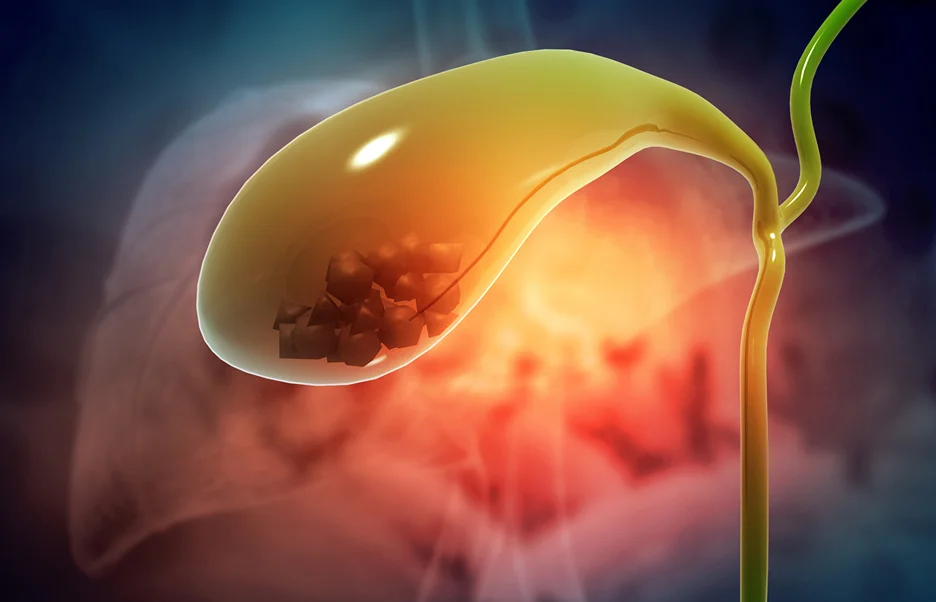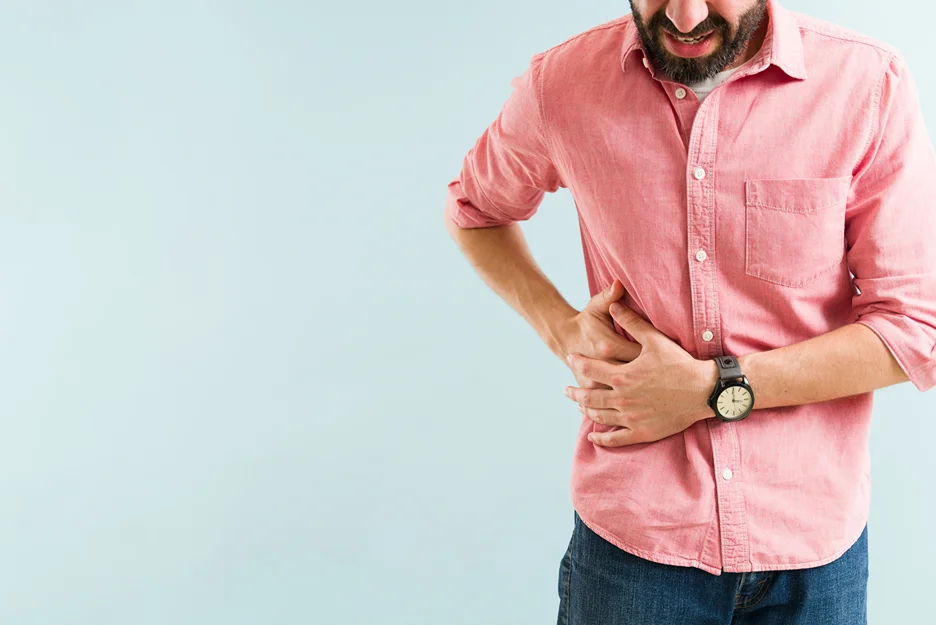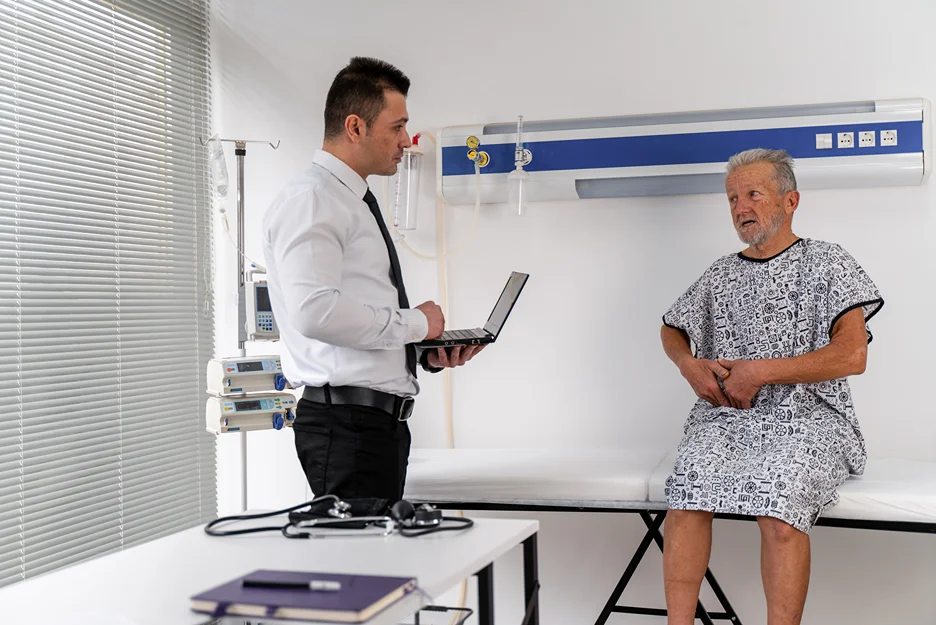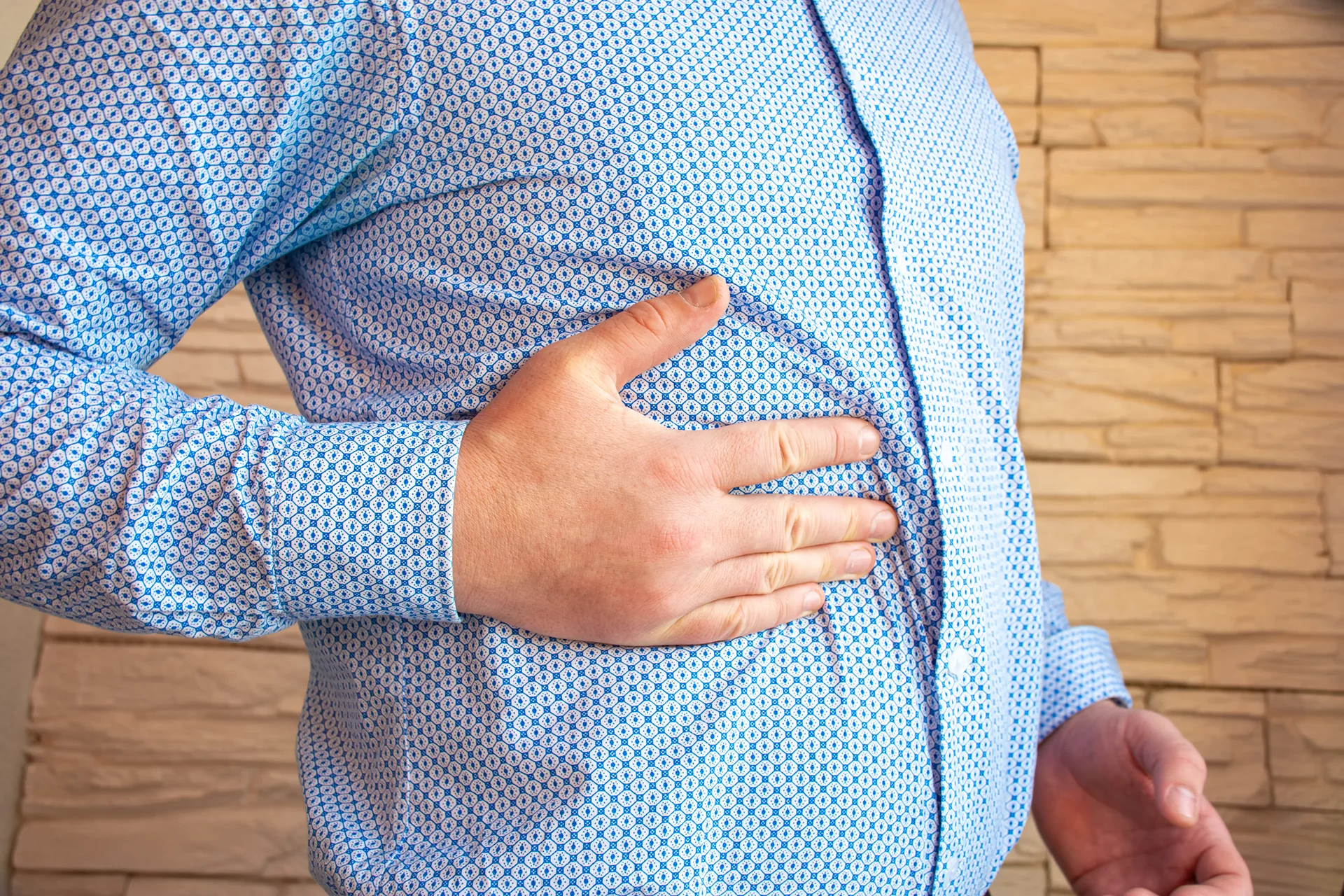Get the facts on gallbladder back pain – causes, symptoms, treatments, and more.
Do you feel a dull, nagging pain in your back that comes and goes? You may be experiencing gallbladder back pain. From mild discomfort to sharp, radiating pain, gallbladder issues can be a real hindrance to your daily life.
But don’t worry, you’re not alone. In this article, we’ll take a look at the causes, symptoms, and treatments of gallbladder back pain so you can find the relief you need.
So let’s take a deep breath and dive into the world of gallbladder back pain – the journey to relief starts now.
Understanding Gallbladder Function
You need to know how the gallbladder works to understand gallbladder back pain. This small organ stores bile, which helps break down fat in the diet. When gallstones form, they can block bile ducts and cause pain.
Symptoms can include abdominal pain, shoulder or back pain, nausea, and vomiting. An inflamed gallbladder or bile backing up can also cause pain. Other causes are gallbladder polyps, rupture, cancer, and acalculous gallbladder disease.
Knowing the function of the gallbladder and the symptoms of gallstones is key to understanding gallbladder back pain.
Identifying Gallstones

Once you understand how the gallbladder works, the next step is to identify gallstones. Gallstones can range in size and are usually formed from excess cholesterol, bile salts, or bilirubin.
Common symptoms include:
- Sharp pain in the upper abdomen
- Pain between the shoulder blades
- Right shoulder pain
- Nausea and vomiting
- Fever and chills
If you experience any of these symptoms, particularly after eating fatty meals, it’s important to seek medical attention.
Silent stones, which are asymptomatic, may not require treatment. However, risk factors such as obesity, diabetes, rapid weight loss, and excessive estrogen can increase your chances of developing gallstones.
To reduce your risk, maintain a healthy weight, exercise regularly, and eat a balanced diet.
Recognizing Gallstone Symptoms
Recognizing gallstone symptoms early is key to seeking timely medical attention. Gallstones can cause severe abdominal pain, radiating to the back, after eating fatty meals.
Other symptoms may include nausea, vomiting, indigestion, heartburn, gas, clay-colored stools, jaundice, and fever.
Silent stones usually don’t cause symptoms but can lead to infection or blockage. Women, older adults, and those with diabetes are more susceptible. To reduce risk, maintain a healthy weight, eat balanced meals, and exercise regularly.
If experiencing any of these symptoms, contact a doctor to ensure proper diagnosis and treatment.
Gallbladder-Related Back Pain
Building on the previous subtopic, gallstone symptoms can lead to abdominal pain radiating from the gallbladder to the back. Pain in the back can be a sign of gallbladder problems and it’s important to be aware of the potential causes and treatments.
Here are the key points to remember:
- Gallbladder inflammation, polyps, or rupture can cause back pain.
- Bile reflux can lead to back pain if left untreated.
- Gallstone attacks can cause severe pain in the back.
- Gallbladder cancer can cause back pain, though it’s rare.
- Dyskinesia causes abdominal and back pain.
If you experience any of these symptoms, seek medical attention immediately. Early diagnosis and treatment can prevent further complications.
Causes of Gallbladder Discomfort

There are several conditions that can lead to discomfort in the gallbladder, such as gallstones, inflammation, and polyps.
Gallstones, caused by excess cholesterol, bile salts, or bilirubin, can cause severe abdominal pain, especially after eating fatty foods, and can radiate to the back or shoulder blades.
Inflammation of the gallbladder (cholecystitis) can cause sharp pain in the upper right abdomen, while gallbladder polyps that are large can cause abdominal and back pain. Bile reflux, gallbladder rupture, and gallbladder cancer can also lead to gallbladder back pain.
Silent stones, however, don’t cause symptoms, nor do they disrupt gallbladder, liver, or pancreas function and may not require treatment. Risk factors include obesity, excess estrogen, diabetes, rapid weight loss, and fasting.
To reduce risk, maintain a healthy weight, eat regular balanced meals, and exercise regularly.
Risk Factors for Gallstones
You’re at risk for gallstones if you’re obese, have excess estrogen, diabetes, or have experienced rapid weight loss or fasting. Here’s a quick overview of key risk factors:
- Obesity
- Excess estrogen from pregnancy, hormone therapy, or birth control pills
- Diabetes
- Rapid weight loss
- Fasting
Gallstone risk increases with age, and women are twice as likely as men to develop them. Certain cholesterol-lowering drugs may also increase cholesterol secretion in bile.
Living a healthy lifestyle can help reduce your risk of gallstones. Eating nutritious meals, exercising regularly, and maintaining a healthy weight can all help.
If you have any of the risk factors, talk to your doctor to learn more and find out how to reduce your risk.
When to Seek Medical Help
Your risk of gallstones increases with age, and if you experience any of the symptoms, you should seek medical help.
You should also seek medical help if you are at high risk for gallstones, have any of the symptoms that mimic other medical conditions, or experience any of the following:
- Symptoms
- Sweating, chills, low-grade fever
- Yellowish skin or eyes
- Clay-colored stools
If you experience any of these symptoms, contact your doctor or go to the emergency room right away.
The earlier gallstones are diagnosed, the more likely treatment is to be successful. Don’t ignore signs and symptoms of gallstones, as they can be life-threatening.
Preventing Gallstone Formation
While there’s no sure way to prevent gallstones, you can reduce your risk by making lifestyle changes. Here are some tips:
- Maintain a healthy weight.
- Consume a balanced diet of whole grains, fiber, and calcium.
- Exercise regularly.
- Avoid rapid weight loss.
- Limit high cholesterol foods.
These simple shifts can help you lessen the chances of developing gallstones, and in turn, back pain. You don’t have to do them all at once, start with one and then add more over time.
With the right plan and dedication, you can protect your gallbladder and prevent back pain.
Dietary Tips for Gallbladder Health
Building on the previous subtopic of preventing gallstone formation, another important step to gallbladder health is making dietary changes.
Eating a balanced diet, and avoiding processed foods and those high in fats, sugar, and salt is essential. Whole foods like fruits, vegetables, and whole grains are beneficial for gallbladder health.
Lowering cholesterol levels and avoiding rapid weight loss can also reduce the risk of gallstones. Cutting down on sugary drinks, full-fat dairy, and red meat can also help.
Eating regular, smaller meals throughout the day is better for digestion and can help keep cholesterol in check.
Taking time to slow down and chew food thoroughly helps the gallbladder better digest what you eat. Making these dietary changes can help keep your gallbladder healthy and reduce the risk of gallbladder issues.
Treatments for Gallbladder Issues
When it comes to treating gallbladder issues, there are several options available:
- Medication: Prescribed to reduce pain and inflammation, as well as dissolve gallstones.
- Surgery: Removal of the gallbladder, either via laparoscopy or traditional open surgery.
- Diet: Eating a low-fat, high-fiber diet can help reduce gallstone formation.
- Herbal Remedies: Certain herbs may help to reduce gallbladder symptoms.
- Lifestyle Changes: Exercise, stress management, and weight loss can help to reduce gallstone formation.
No matter what treatment you choose, it’s important to speak to your doctor and get their professional opinion. Taking care of your gallbladder health is essential for overall wellness and quality of life.
Conclusion

You don’t have to suffer in silence if you have gallbladder back pain. By understanding the causes, symptoms, and treatments, you can take steps to manage your pain and get back to living life to the fullest.
Be sure to seek medical help if the pain persists or worsens, and take steps to keep your gallbladder healthy with dietary changes and preventative measures.
With the right care, you can reduce your discomfort and help ensure a happy and healthy future.
